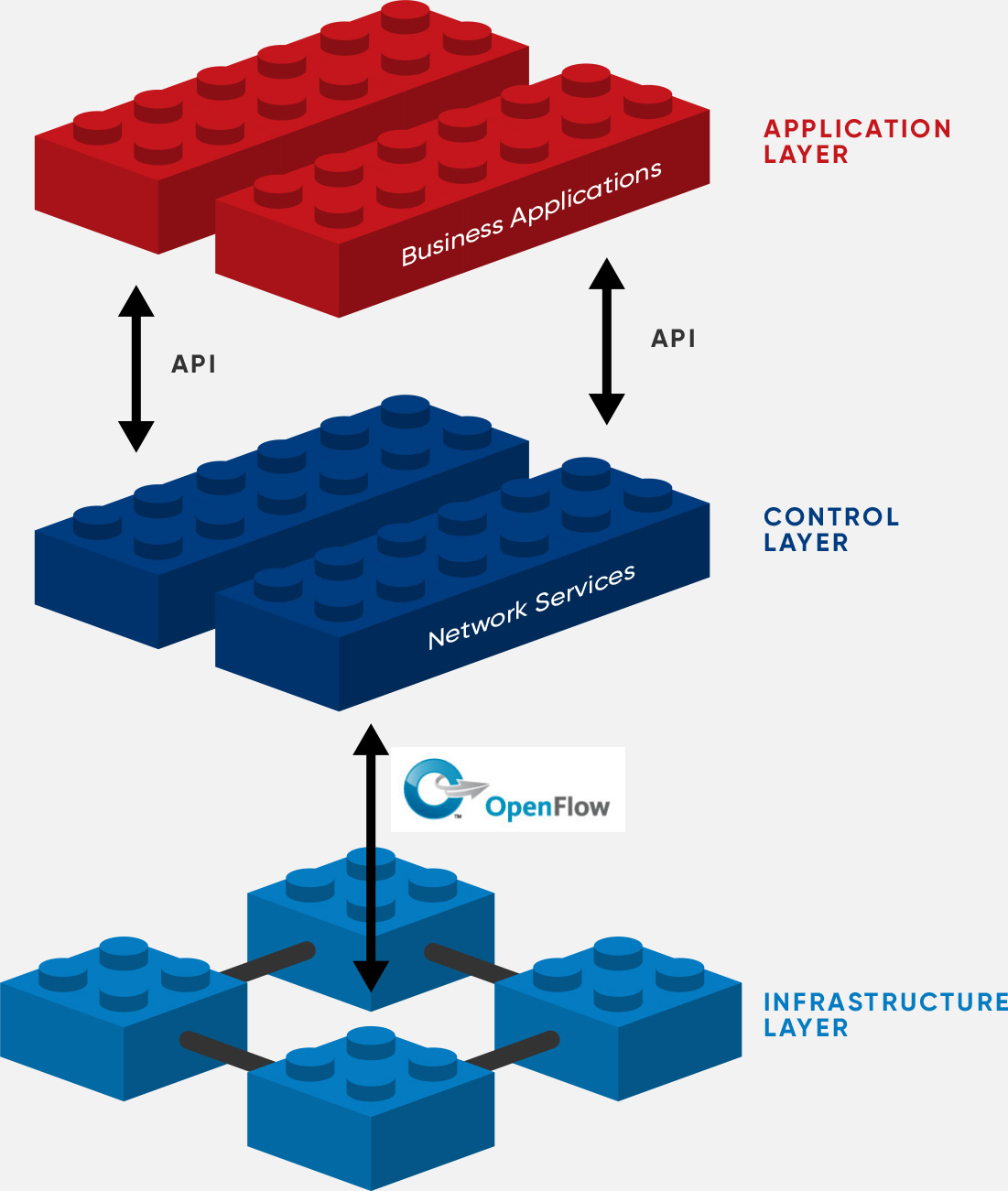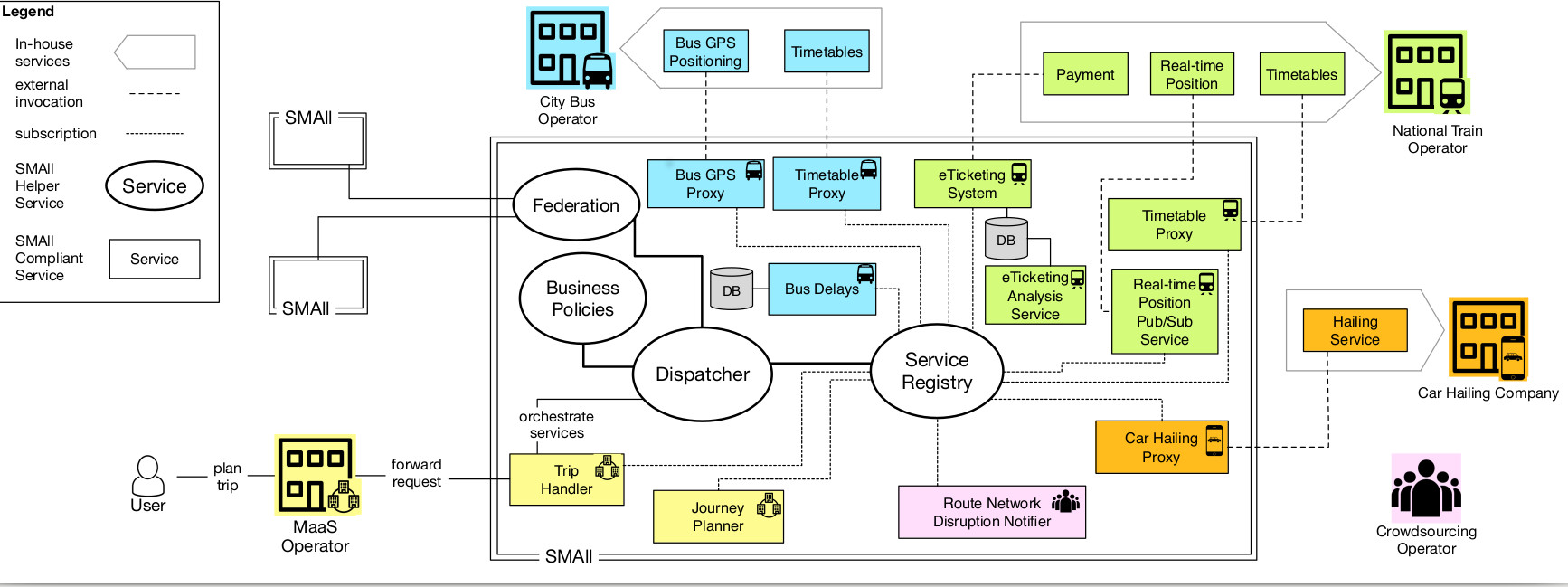Our research is divided into five primary macro categories:
- Software-Defined Networking
- Serverless and Microservice Architecture
- Internet of Things
- Automotive
- Data Management
Our activities focus on these key areas and cover a range of topics, from theoretical research and development of original, innovative solutions to applied research on existing systems.
Additionally, we benefit from partnerships with companies and the public administration of the Emilia Romagna region, enabling us to perform advanced testing of existing systems and platforms leveraging the knowledge gained from our research activities.
Software Defined Networking

Software-Defined Networking (SDN) is an innovative approach to cloud computing that simplifies network management by allowing for programmatically efficient network configuration. This technology enhances network performance and monitoring, making it more adaptable and responsive to changing demands.
Software-Defined Networking (SDN) aims to address the limitations of traditional, decentralized, and complex network architectures, which struggle to meet the increasing need for flexibility and easy troubleshooting in modern networks. SDN introduces the concept of centralizing network intelligence within a single component by separating the forwarding of network packets (Data Plane) from the routing decisions (Control Plane).
From its inception, SDN has placed a strong emphasis on addressing security concerns. Some potential security threats we are particularly interested in include:
- Malicious injected flow-rules leading to multiple compromised network devices.
- Attacks that prevent nodes from communicating or divert traffic flows for eavesdropping.
- Inner loops and black holes, which are typically hard to detect through traditional network scans.
- Flow-rule replacement or removal, aiming to cause unexpected network behavior, such as Denial of Service (DoS) or Man-in-the-Middle attacks.
- Any form of SDN controller exploitation that compromises the forwarding activities of the network.
At Ulisse Lab, while we are generally interested in all potential applications of Software-Defined Networking (SDN), our primary focus lies in its applications within Industry 4.0.
We are actively seeking projects and thesis work in the following areas:
- Penetration testing and analysis of both existing and emerging SDN protocols, controllers, and applications.
- Practical testing and evaluation of the current state-of-the-art SDN technologies.
- Development of tools and plugins for leading SDN controllers aimed at improving and assessing network security.
- Enhancing and developing our ONOS controller framework, which is focused on building a comprehensive set of tools for Industry 4.0 security administration.
Serverless and Microservice Architecture

A microservice architecture is a type of distributed application in which all its components are microservices. Each microservice is a self-contained, independent process that interacts with other services through message-based communication.
For example, consider a service designed to perform calculations. To be classified as a microservice, it should focus solely on providing arithmetic operations that can be requested via messages. It should not handle additional, loosely related tasks such as plotting or displaying functions.
Serverless, also known as Function-as-a-Service (FaaS), is the latest technology for designing and deploying distributed applications. These applications consist of multiple programs that communicate via message-passing and can be deployed across different hosts.
This type of architecture has gained popularity due to its inherent scalability and seamless integration with cloud services, including AWS Lambda, Azure Functions, Google Cloud Functions, and IBM BlueMix Cloud Functions.
However, while it has addressed many of the key challenges associated with cloud platforms, it has also introduced new issues.
At Ulisse Lab, we are seeking projects and thesis work in the following areas:
- Analysis and testing of current or emerging serverless paradigms, with a focus on developing a formal model to describe, analyze, and manage security threats in such platforms.
- Development of new security solutions for Serverless and Microservices applications.
- Penetration testing of real-world applications, including platforms like AWS, OpenWhisk, and others.
These topics offer opportunities for innovative research and practical application in cutting-edge technologies.
